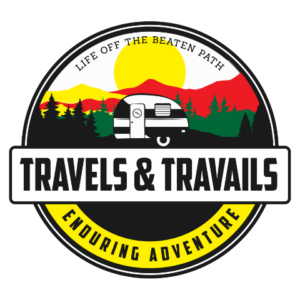Motorhomes are one of my life’s greatest passions and what inspired me to start this blog. You’re on the precipice of owning an RV yourself, but you’re still undecided. You’d love to review some pros and cons first, so what are they?
The pros and cons of motorhome ownership are as follows:
- Spend more time in nature
- Your new home away from home (or your primary home!)
- Finally get to travel, but…
- Expensive
- Storage difficulties
- Requires a lot of time
This guide will assess the best parts of owning a motorhome and those parts that aren’t so great but every RVer must face. By the time you’re done reading, you should have no trouble deciding whether a motorhome is right for you!
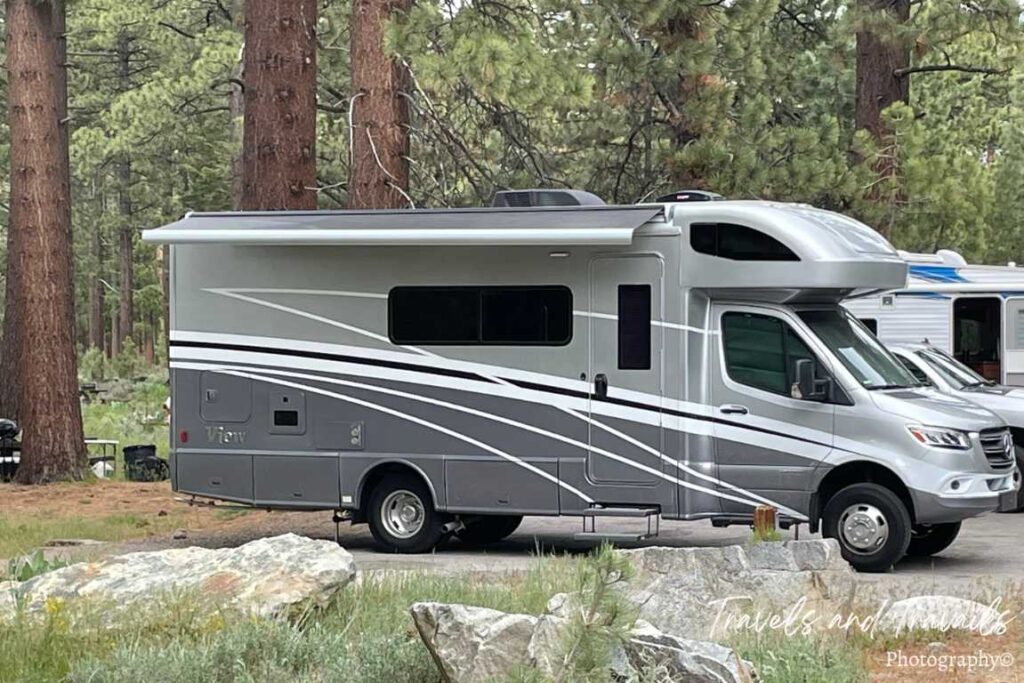
The Pros of Owning a Motorhome
Let’s start with the good news. If you proceed with your purchase of an RV, you can enjoy these great benefits.
1. Comes in All Shapes, Sizes, and Price Points
When I talk about motorhomes, you might envision a hulking Class A or Class C RV, but those are far from your only options!
A motorhome also refers to a mid-sized Class B or a travel trailer. Those run the gamut in shapes and sizes, from ultra-tiny teardrop trailers to full-sized travel trailers that rival the size of some RVs.
The sheer versatility available means that no matter your budget, your travel party size, and your needs, you can find a motorhome that works for you.
2. Spend More Time in Nature
How often do you say you’re going to spend a weekend camping, but you never get around to it? You always get too caught up with housework, or you had a long week and just want to veg on the couch, or you started a new Netflix series and can’t peel yourself away.
In the meantime, you’re missing out on key benefits that can improve your physical and mental wellbeing. Spending time in nature can bolster your mood, making you happier as those feelings of anger and stress melt away.
You’ll be more active, which can benefit your physical health and even help you lose weight if you have a healthy diet and spend enough time exploring outdoors. Nature has social connections too, as you never know who you’re going to meet.
Putting down the phone, logging out of Netflix, and getting outside will do wonders for you and your loved ones. Owning a motorhome can finally facilitate that outdoor time you’ve longed for, giving you an excuse to go camping again and again.
3. Your New Home Away From Home
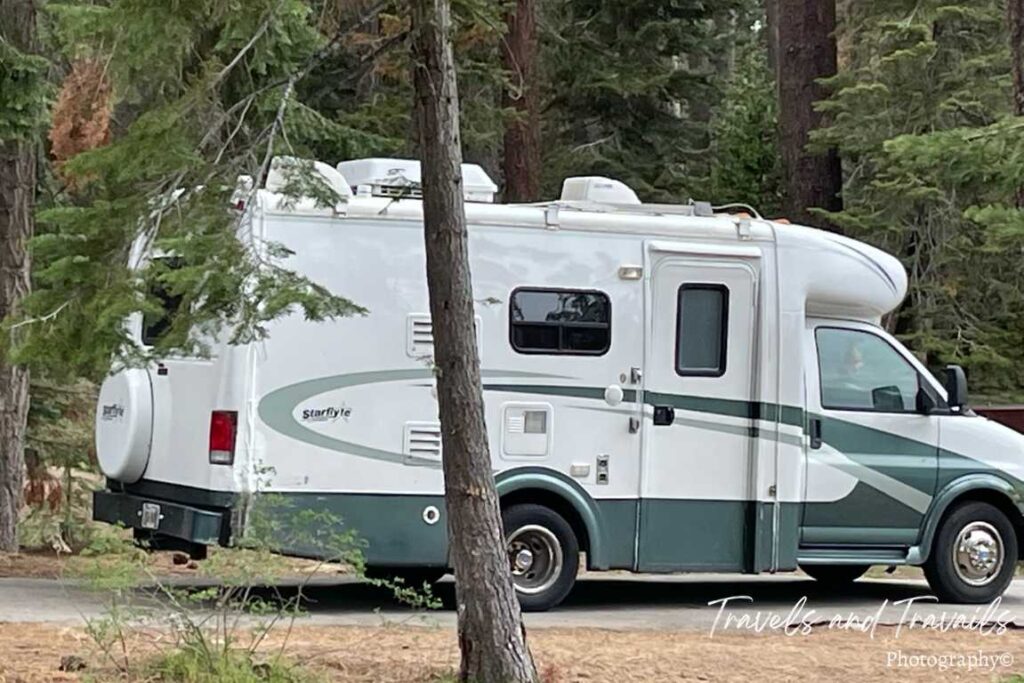
Don’t we all dream of owning a second home? I know I do!
Well, your RV can be your new home away from home. Today’s motorhomes come with such lavish amenities that they rival what you’d find in some apartments. Nope, I’m not kidding about that!
Your vehicle could include a full bathroom with a shower and toilet and an elegant indoor (or outdoor, or even both) kitchen with a stovetop, microwave, cabinet space, and a sizable fridge. You’ll have at least one bedroom, and perhaps a second bedroom nook.
You’ll love RV life if you’ve gotten behind the minimalist home trend with shipping container homes and other teeny-tiny residences. It’s like living in a small home but on wheels.
4. Can Become a Full-Time Home
Of course, you might fall so much in love with your motorhome that you decide to ditch your brick-and-mortar home and live in your RV permanently.
There are certainly upsides to this decision! You can travel constantly, as you’re not rooted to any particular location. You’ll save so much money on a mortgage, utilities, property taxes, homeowner’s association fees, and house-related expenses.
You must consider a few unique issues you’ll face when you live in a motorhome. You must have a remote job or you won’t be able to bring in any revenue. It’s also complicated when tax time comes around, but not impossible to navigate if you have a CPA well-versed in RVs!
5. A Great Way to Meet New People
Motorhome life is anything but lonely. If you need a break from your traveling companions (and that’s totally normal if you do!), you’ll always have a revolving cast of characters you meet as you go about your RV adventures.
You’ll meet people when staying at campgrounds and parks. If you join an RV club or stay at an RV resort, you’ll undoubtedly come across other travelers just like you.
You can swap stories, travel routes, and life experiences. Make sure you grab their contact information if you like someone and want to keep in touch!
6. You’ll Finally Get to Travel
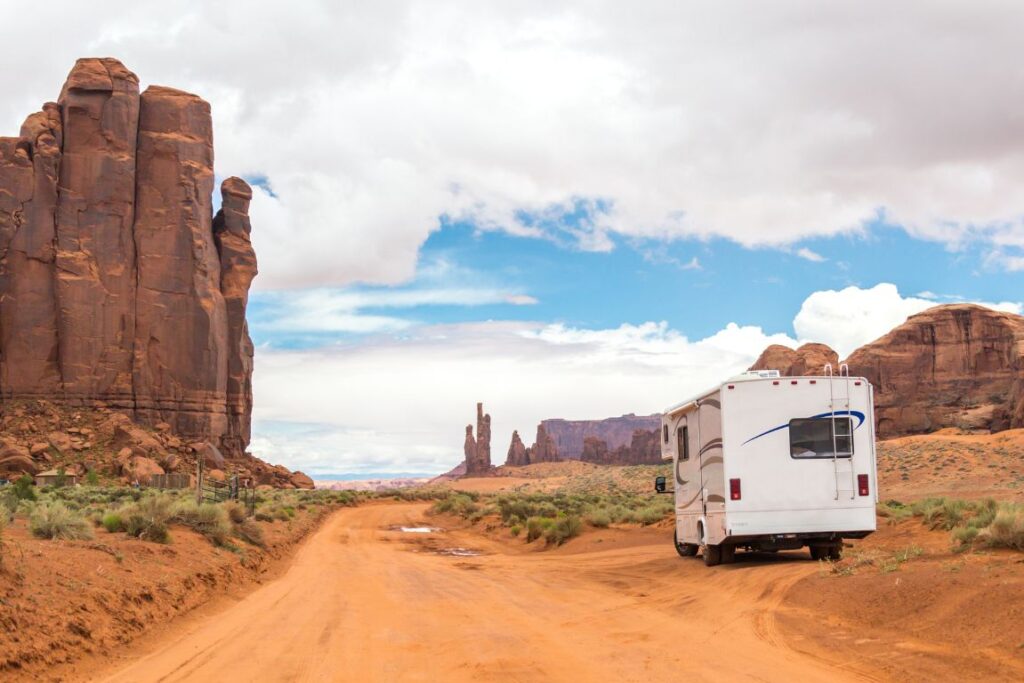
Everyone has a bucket list with travel destinations a mile long, but how many of them have you been to? Maybe a few here and there, but this is another case where life gets in the way.
Who has enough time? You will once you own a motorhome.
Well, let me put it to you another way. You’ll want to make time to travel once you own a motorhome.
You just spent five or six figures on a new RV. It’s not a sculpture in a museum. You’re not supposed to look at it, you’re supposed to get out there and drive it!
Now that you have an excuse to travel, you’ll cross off more of those dream bucket list destinations than ever before.
The Cons of Owning a Motorhome
I’ll always be a proponent of motorhome ownership, but I recognize that it’s not all sunshine and rainbows. Without further ado, let’s explore the downsides of having an RV.
1. Expensive to Buy, Even Used
New motorhome costs start at around $35,000 through $300,000 and up. Most people don’t have that kind of cash just lying around, so it can take years of cutting back on everyday expenses and saving every penny just to own a motorhome.
If you decide to go used, you won’t always save as much money as you might have hoped. Newer used motorhomes maybe shave a few thousand dollars off the initial asking price, which really doesn’t help you save that much money.
However, you risk buying a lemon if you go too old with your RV, so it’s a tough situation. I’m not saying you can’t find a great used motorhome, but you have to know where to look, and even then, there’s a certain element of luck involved.
2. Ongoing Expenses
Once you manage to afford a motorhome, that doesn’t mean you’re done spending money on it forever. An RV is a constant expense.
You have to pay to keep the tank full. The first few times you fill up, you’ll experience sticker shock at how costly it is at the pump, especially if you own a bigger motorhome. You’ll get used to the costs eventually, but they’ll always drain your wallet especially badly.
You have to pay for resources at campsites like water and electricity. It’s often not free to dump your graywater and blackwater tanks.
You must also pay for maintenance, repairs, motorhome insurance, RV memberships if you join them, meals out, and all sorts of other little expenses that add up month over month and year over year.
3. It’s Tough to Find an Off-Season Parking Spot
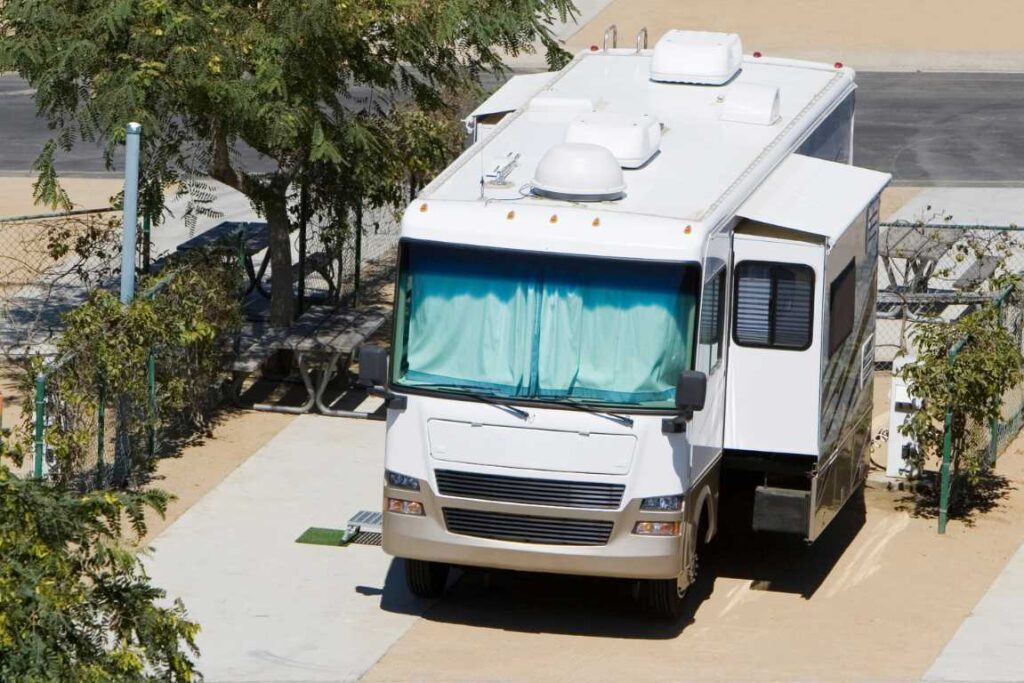
If you live in your RV full-time, you never have to worry about what you’ll do with it during the off-season because you don’t have an off-season.
However, those motorhome owners who take a break during the frigid winter months must figure out storage.
You have plenty of options, but only some will be viable depending on the size of your motorhome.
If you have a small RV or travel trailer, you can possibly get away with parking it in your driveway or on the curb in front of your house. Keep in mind that your neighbors might perceive your motorhome as an eyesore and complain until you move it.
Your other option is a storage facility. You can opt for outdoor or indoor storage, and–if you have the room in your budget–indoor heated storage.
Storage facilities usually charge by the month, so that’s one more expense to add to your ever-growing list of motorhome costs.
4. Needs Ongoing Maintenance
Like any vehicle, a motorhome needs TLC from its owner to stay in operational shape. RVs are decidedly more complex than your average car or truck, so their maintenance needs are about a mile long.
You’ll have to commit to some maintenance task nearly every single day, whether it’s something as simple as changing air conditioner filters or checking the windshield wiper fluid levels to more complex tasks like flushing your blackwater tank or refilling batteries.
The only time you’re not doing RV maintenance is when your vehicle is in storage. Even before then, you have to take care of a litany of winterization tasks to prep your motorhome for months of sitting around idle.
5. Always Has Unexpected Costs
These are all the costs and tasks you can reasonably predict, but your motorhome will have those surprise expenses too. Of course, it will; it’s a vehicle, after all!
From coolant issues to a broken fridge, busted tires, dead lightbulbs, and that dent in the side of the chassis that mysteriously showed up one day, you’ll have to pay for it all. You won’t be able to prep for these expenses, so hopefully, they’re not too pricy!
6. Depreciates in Value
If you buy a motorhome in the hopes of turning around in a few years and selling it, you’re going to end up bitterly disappointed.
That’s not really how RVs work. Their value drops by 30 percent within the first three years, says J.D. Power. If you hold onto your Class A motorhome for 10 years, it’s worth less than half its original value at that time.
The best time to sell is immediately after buying, but why would you want to do that?
Conclusion
Motorhomes are wonderful investments, and while I’m sure many of you reading this would agree, not all. That’s okay! The point of this guide is to help you discern whether RV ownership slots into your life. I hope you can make a choice you’re happy with.
